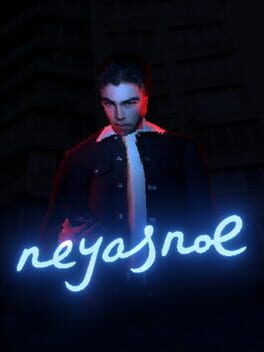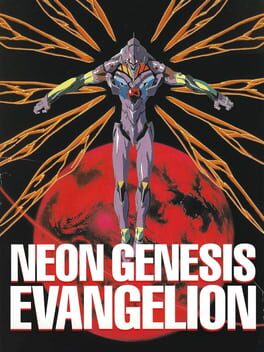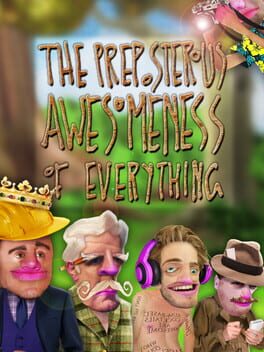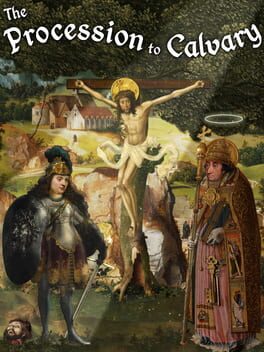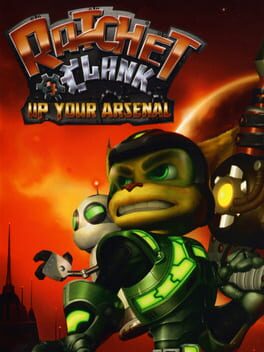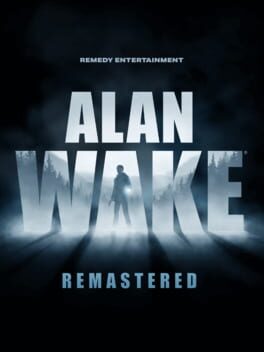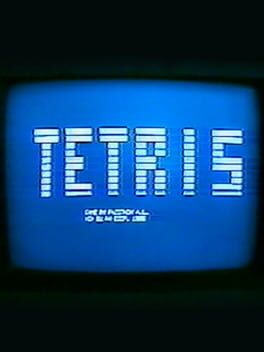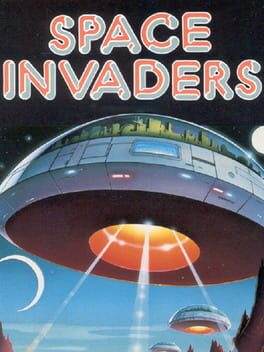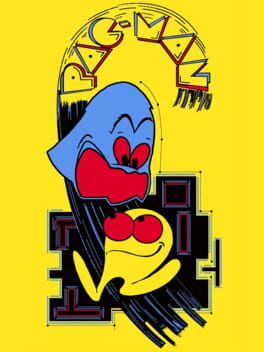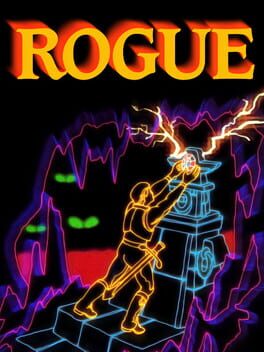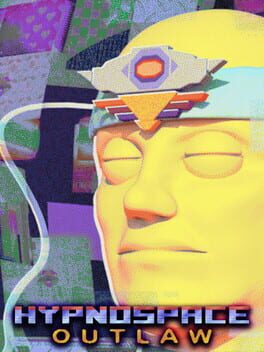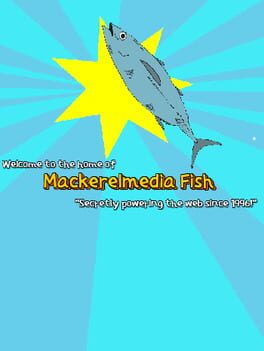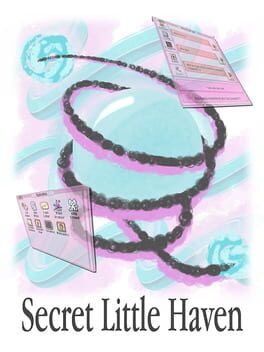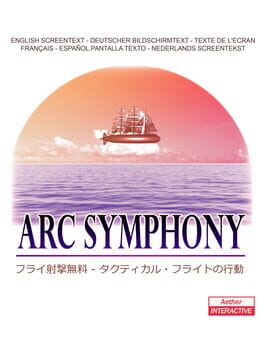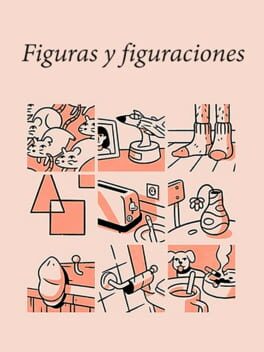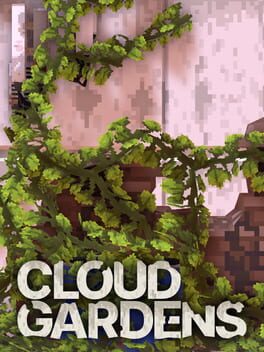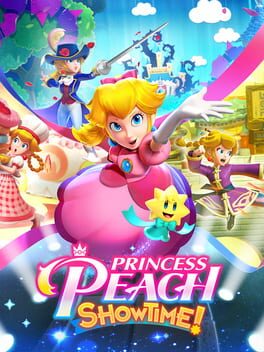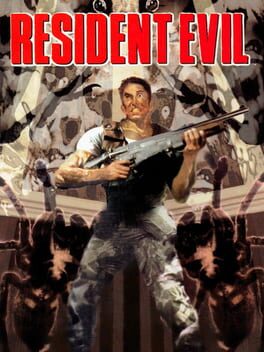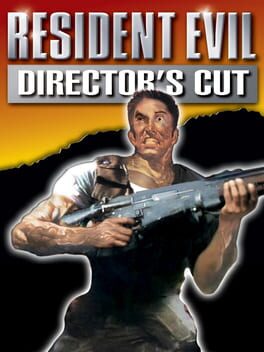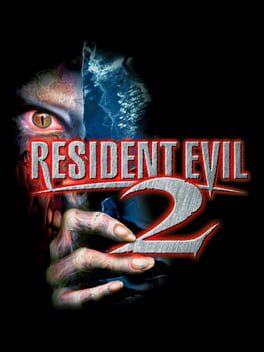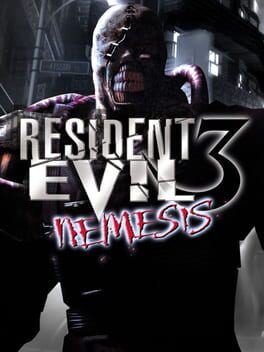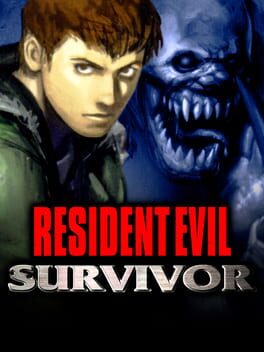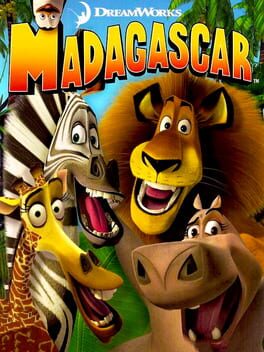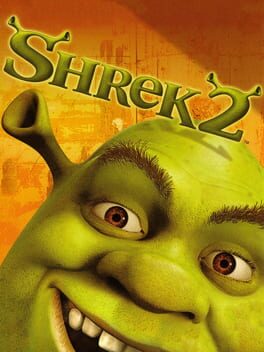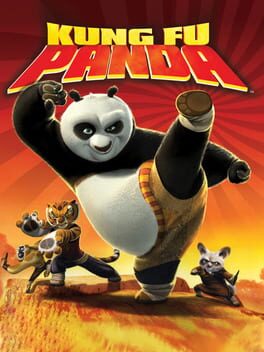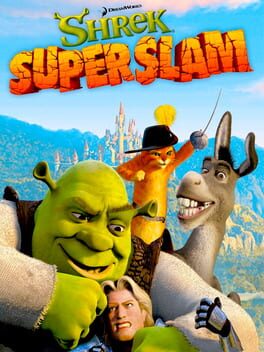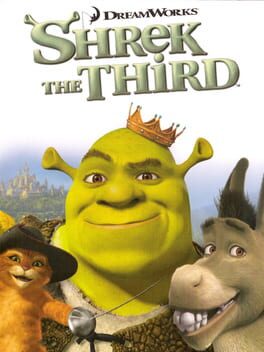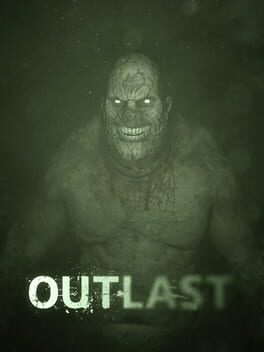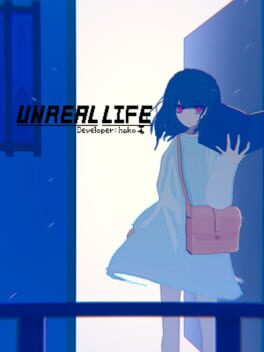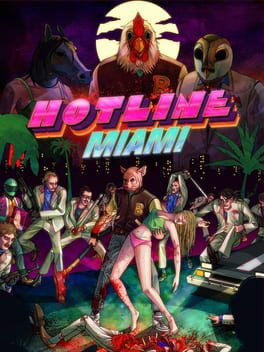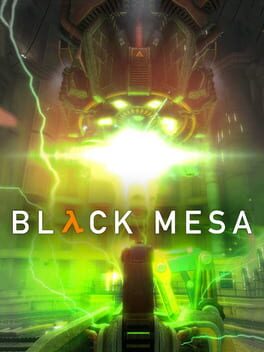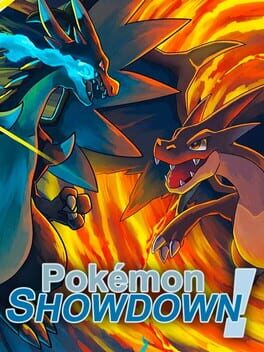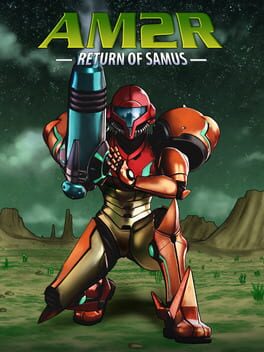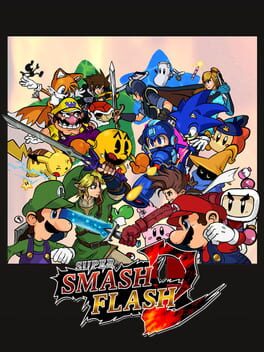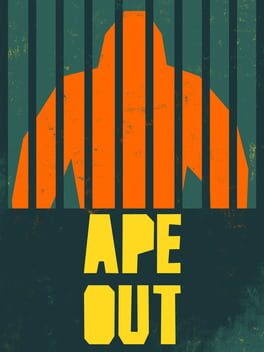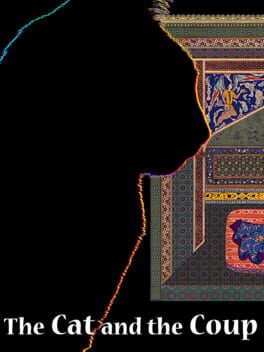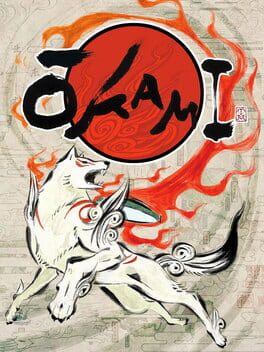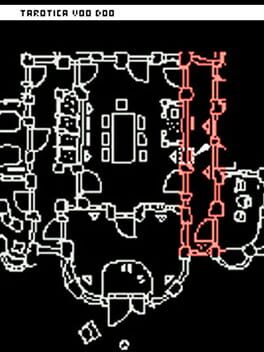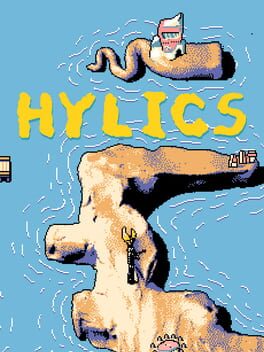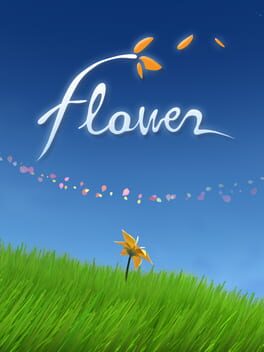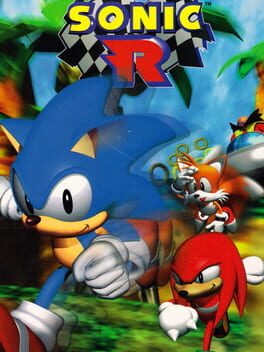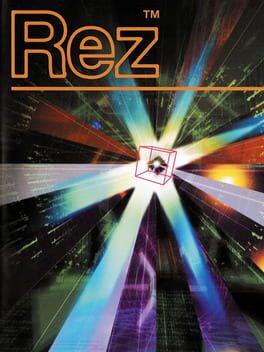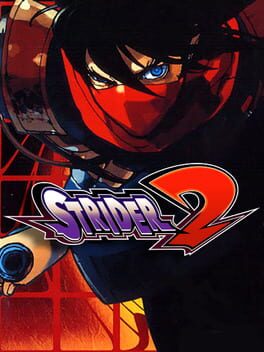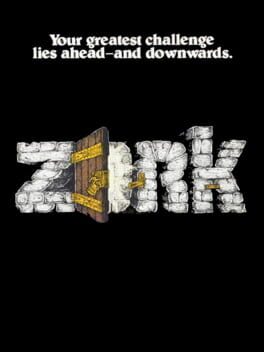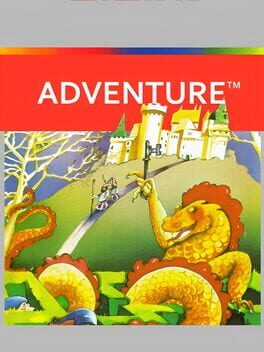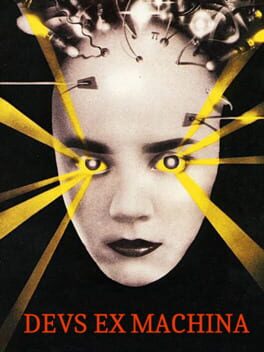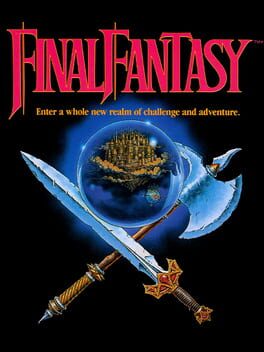adricollantex
125 reviews liked by adricollantex
Hi-Fi Rush
2023
Fuck Microsoft for closing Tango Gameworks, Hi-Fi Rush owns. Rarely has an action game felt so intuitive and effortless. The sheer adrenaline I got from the soundtrack makes me want to replay it almost immediately. I literally jumped of my chair during the cantina scene, although I already knew the song was in the game. And I did it again during the wolf boss iykyk. As a big fan of rhythm games and an average character action game enjoyer gameplay-wise I'd say Hi-Fi Rush feels almost perfect.
My only criticism is that the story feels sort of bland for most of it and is just set-dressing, the characters feel severely under-cooked and especially the overall message the story carries is one I highly disagree with. I'm okay with the story being mid, but I can't unsee that all being worked towards here is a different person running the company, instead of the guy who developed the literal mind control machine. Never mind that the basic structure of exploitation and the drive to do everything for money (which is what some characters heavily criticize throughout the story) are still in place. Everything the game says against corporatism is very very surface level and in some instances even funny in dialogue, but never brings the thought to an end. That doesn't mean, that there are no funny observation about corporatism and the ins and outs of a production line in this game. The analogy works very well in the realm of games production too, which gives the satire a little more punch and a sad undertone, considering that whatever the joke at hand, has probably happened to multiple people on the team. Game development just sucks.
As a game overall, Hi-Fi rush is a banger from start to finish and I can't recommend it enough, which is something I didn't want to negate with my critique. These are just things I picked up on and disagree with.
My only criticism is that the story feels sort of bland for most of it and is just set-dressing, the characters feel severely under-cooked and especially the overall message the story carries is one I highly disagree with. I'm okay with the story being mid, but I can't unsee that all being worked towards here is a different person running the company, instead of the guy who developed the literal mind control machine. Never mind that the basic structure of exploitation and the drive to do everything for money (which is what some characters heavily criticize throughout the story) are still in place. Everything the game says against corporatism is very very surface level and in some instances even funny in dialogue, but never brings the thought to an end. That doesn't mean, that there are no funny observation about corporatism and the ins and outs of a production line in this game. The analogy works very well in the realm of games production too, which gives the satire a little more punch and a sad undertone, considering that whatever the joke at hand, has probably happened to multiple people on the team. Game development just sucks.
As a game overall, Hi-Fi rush is a banger from start to finish and I can't recommend it enough, which is something I didn't want to negate with my critique. These are just things I picked up on and disagree with.
Celeste
2018
No hay mejor palabra para describir este juego que “bonito”. Honestamente no soy muy fan de los plataformeros pero Celeste me cautivo desde el primer segundo, el diseño de niveles es asombroso, la sensación al mando es tan satisfactoria y la historia es una caricia al corazón.
Tiempo total: 5:40:35
Muertes totales: 1282 JAJAJA
Tiempo total: 5:40:35
Muertes totales: 1282 JAJAJA
Neyasnoe
2023
In a cold spring night, I opened my window just a bit in hopes of catching some of my chain-smoking neighbor's cigarette smoke in my apartment for the second playthrough of this game, as I don't smoke myself. Maybe I should?
For me, this game captures the melancholic feeling of why it's so good to be alive while reminding about the pointlessness of one's existence in modern society.
The aesthetics and sound design tingle my neurons so well that I want to become one with it. It's as fleeting as the blue hour, yet like any stunning mood in the world, it can't last long at a time.
(damn I'm on a roll with this review)
In short: the game is brilliant if you dig the mood it's delivering. :)
For me, this game captures the melancholic feeling of why it's so good to be alive while reminding about the pointlessness of one's existence in modern society.
The aesthetics and sound design tingle my neurons so well that I want to become one with it. It's as fleeting as the blue hour, yet like any stunning mood in the world, it can't last long at a time.
(damn I'm on a roll with this review)
In short: the game is brilliant if you dig the mood it's delivering. :)
I found myself laughing at bits far and few between. This game's humor falls back into SouthPark-esque political relativism and stays entirely reactionary in it's comedy.
To point a finger towards a bad style of leading is all good and fun, until, a few cutscenes later you realize all these jokes lack any political substance. This game just goes: "Look, they're doing it poorly", without actually criticizing why a certain thing is done the way it's done or who it might benefit. The two candidates for example where portrayed as having absolutely no reason to want to stay in power outside of power being the end in itself. This is such a liberal observation and surface-level joke, that showcases how little analysis of power-relations and the reason behind them, went into creating this bit. Sadly, this is how a lot of the topics and themes this game dances around were handled.
I found myself laughing at the revolutionaries at first, but fell off the joke halfway through, where I realized that too was a very surface level view on leftism as a whole, with no intention of interrogating how they ended up on the beach as they were. Joe had comedy-gold laying at his feet and then decided to just go for making the point that leftism, revolutionaries are impotent to change anything and are just complacent.
Neither did I feel offended, nor did I see any even half smart observation being made here. If this really wants to be a satiric game, it failed for me in that regard. Because that is a problem I see with most of the actual jokes being made. This game too references Monkey Island quite heavily in parts and although MI's setting is not nearly as close to the modern and current world, as this one is, it makes so many smarter and overall just more great observation about politics, bureaucracy and discourse-culture than this game does.
My last point on this game specifically, but also on the two works of Joe Richardson I played so far:
1. This is the second out of three games (so far and only that I know of) if Richardson, where you use a woman towards your own means. That just rubs me the wrong way. In Four Last Things it was literally to have sex with a woman for a quest, without her having any meaningful dialogue. The only means of interacting with her in that game was to look through the window that had Peep here! written above it, and later handing her a piece of poetry to trick her into thinking the protagonist wrote it.
In this game, you take a picture of the naked chest of Helen, to hand it to the guy writing the newspaper on the island. Later you use her AGAIN, because you need a famous person behind you, while holding a political speech, in order to gain more votes. I could read some commentary in the latter, and am not against devs making you do horrible stuff in videogames in order to send a message, but these two were nearly unaccompanied by anything substantial or adressed ever after they happen and so I have to take them as very flat jokes, played only for laughs.
Overall this game just screamed 2016 at me and I felt that from playing Four Last Things, I have a pretty good guess at what The Procession to Cavalry could be. I can't deny, that what Richardson achieved here, is definitely an intriguing body of work, that I'm willing to engage with a little more. It feels like Four Last Things was an answer to this game in some sense. Many of the frameworks loosely resemble each other (getting the documents e.g.) and overall the newer one improves many of them over this game. I'm intrigued what the next two games have in store.
2/3 of my reviews on Joe Richardson's body of work
To point a finger towards a bad style of leading is all good and fun, until, a few cutscenes later you realize all these jokes lack any political substance. This game just goes: "Look, they're doing it poorly", without actually criticizing why a certain thing is done the way it's done or who it might benefit. The two candidates for example where portrayed as having absolutely no reason to want to stay in power outside of power being the end in itself. This is such a liberal observation and surface-level joke, that showcases how little analysis of power-relations and the reason behind them, went into creating this bit. Sadly, this is how a lot of the topics and themes this game dances around were handled.
I found myself laughing at the revolutionaries at first, but fell off the joke halfway through, where I realized that too was a very surface level view on leftism as a whole, with no intention of interrogating how they ended up on the beach as they were. Joe had comedy-gold laying at his feet and then decided to just go for making the point that leftism, revolutionaries are impotent to change anything and are just complacent.
Neither did I feel offended, nor did I see any even half smart observation being made here. If this really wants to be a satiric game, it failed for me in that regard. Because that is a problem I see with most of the actual jokes being made. This game too references Monkey Island quite heavily in parts and although MI's setting is not nearly as close to the modern and current world, as this one is, it makes so many smarter and overall just more great observation about politics, bureaucracy and discourse-culture than this game does.
My last point on this game specifically, but also on the two works of Joe Richardson I played so far:
1. This is the second out of three games (so far and only that I know of) if Richardson, where you use a woman towards your own means. That just rubs me the wrong way. In Four Last Things it was literally to have sex with a woman for a quest, without her having any meaningful dialogue. The only means of interacting with her in that game was to look through the window that had Peep here! written above it, and later handing her a piece of poetry to trick her into thinking the protagonist wrote it.
In this game, you take a picture of the naked chest of Helen, to hand it to the guy writing the newspaper on the island. Later you use her AGAIN, because you need a famous person behind you, while holding a political speech, in order to gain more votes. I could read some commentary in the latter, and am not against devs making you do horrible stuff in videogames in order to send a message, but these two were nearly unaccompanied by anything substantial or adressed ever after they happen and so I have to take them as very flat jokes, played only for laughs.
Overall this game just screamed 2016 at me and I felt that from playing Four Last Things, I have a pretty good guess at what The Procession to Cavalry could be. I can't deny, that what Richardson achieved here, is definitely an intriguing body of work, that I'm willing to engage with a little more. It feels like Four Last Things was an answer to this game in some sense. Many of the frameworks loosely resemble each other (getting the documents e.g.) and overall the newer one improves many of them over this game. I'm intrigued what the next two games have in store.
2/3 of my reviews on Joe Richardson's body of work
And so my adventure through the works of Joe Richardson continued.
Ahhh, these games. Maybe some of the humor is just not for me. Yet some jokes got the same giggle out of me that Four Last Things did.
This game does something interesting, because after Ending #1 it really opens up. Everything up to Ending 1 was all fun and games, until The Procession to Calvary opens up. At this point it got tedious in places. I don't know what happened to the rather straight forward Puzzle design of it's predecessor, but here it got messy, convoluted and frustrating to a degree. To part ways with the old adventure game trope of having the player pick up everything that's not nailed down, came at the cost of hinting you to very specific items you've already seen and make you fetch them. I would have had these in my inventory, come on, why the backtracking over these huge ass screens. Everything was smaller in his first Renaissance game. And although this game too is gorgeous to look at, the sprinting speed does not account for the landscape pictures this game has now. Also the quest to complete all 7 sins was more interesting than the motivation in this one. Also each quest here, feels a little to long and featuring too many steps to make you feel immediately rewarded. Goes well with my point from above, with the backtracking becoming really tedious at some point.
The humor of this one is also expectantly pitch-black and that just has to be your type of thing. I liked many jokes here, but you REALLY gotta be into this. The meta jokes all spoke to me though and I had a good laugh off those.
But I personally had enough of the
The Immortal John Triptych franchise for now and think I will pass on Death of the Reprobate in the near future.
3/3 of my reviews of Joe Richardson's body of work so far
Ahhh, these games. Maybe some of the humor is just not for me. Yet some jokes got the same giggle out of me that Four Last Things did.
This game does something interesting, because after Ending #1 it really opens up. Everything up to Ending 1 was all fun and games, until The Procession to Calvary opens up. At this point it got tedious in places. I don't know what happened to the rather straight forward Puzzle design of it's predecessor, but here it got messy, convoluted and frustrating to a degree. To part ways with the old adventure game trope of having the player pick up everything that's not nailed down, came at the cost of hinting you to very specific items you've already seen and make you fetch them. I would have had these in my inventory, come on, why the backtracking over these huge ass screens. Everything was smaller in his first Renaissance game. And although this game too is gorgeous to look at, the sprinting speed does not account for the landscape pictures this game has now. Also the quest to complete all 7 sins was more interesting than the motivation in this one. Also each quest here, feels a little to long and featuring too many steps to make you feel immediately rewarded. Goes well with my point from above, with the backtracking becoming really tedious at some point.
The humor of this one is also expectantly pitch-black and that just has to be your type of thing. I liked many jokes here, but you REALLY gotta be into this. The meta jokes all spoke to me though and I had a good laugh off those.
But I personally had enough of the
The Immortal John Triptych franchise for now and think I will pass on Death of the Reprobate in the near future.
3/3 of my reviews of Joe Richardson's body of work so far
Alan Wake Remastered
2021
I first started Alan Wake years ago, but only got into the tutorial before my attention wandered. After playing Control on release and with the hype for Alan Wake 2 building, I figured it was time to sit down and play through the remaster. While this is still probably the right call for maximum enjoyment of the sequel, I found the original game to be dull, frustrating, overly long, needlessly repetitive, and honestly outright bad.
The story is Alan Wake’s only real appeal. What clearly begins by resting on the laurels of Twin Peaks does blossom (with the help of the excellent Control) into a wider narrative that is genuinely engaging. For the most part, anyway. I won’t go into too many specifics because I do think that’s what makes the game tick. It’s relatively well delivered, but paced terribly and is overly vague. There are a couple details that get expanded on in the DLC and the spinoff Alan Wake’s American Nightmare that do originate from this game, but… they’re not really actually explained. Even the wiki is a little unclear about how certain details line up. It stinks that you have to get info from so many other places to see the full broader narrative, but I guess that was the intent from the start, so it’s hardly worth criticizing. The full cast is shockingly small, with really only Alan and Barry and the Anderson brothers being consistent characters. Agent Nightingale is basically absent from the story and the other Bright Falls residents are genuinely window dressing. Still, despite these issues, there is an appeal here. YMMV if the game itself is worth trudging through for that.
The real death knell for Alan Wake is the gameplay. For a narrative focused game, almost nothing you do is related to the actual narrative. The cutscenes and manuscripts tell the story, and the bulk of the chapters (“Episodes”) of the game itself are mostly traipsing through forest segments fighting shadow people. The third person shooting mechanics here are laughably shallow. Alan’s flashlight burns the darkness off of infected people - “Taken” - (who I guess are beyond saving despite that, because he then kills the shit out of them) and your weapons kill them.
You have a pistol, a shotgun, a hunting rifle, and a variation of each (ex: pump shotgun). Flares act as “get off me” tools and flashbangs are grenades. That’s about it. Alan moves like a tank through a swimming pool of high-grade molasses, and his stamina is awful, giving you very little mobility in fights. A not-super-reliable dodge can save you sometimes, but once you’re surrounded you’re likely to take damage regardless, as the terrible camera and bad environmental design allows enemies to easily swarm you. There are really only about 5 enemies, and they’re all variations on either lumberjacks or fishermen. I figured from the first chapter that this was an aesthetic choice for that part of the story, and I would go on to fight, say, Taken engineers, or Taken chefs or something. No, it’s just lumberjacks all the way down. The game loves to just send Alan into the woods to fight things, and it is actually a majority of this game’s runtime. I cannot stress just how dull and repetitive these sections are - I groaned audibly when I figured a chapter was ending only to find out I had multiple more forest segments to go. The game also only knows to switch things up by taking away your weapons, not by throwing new enemies or challenges at you. Alan will regularly get into a car / helicopter / window accident that causes him to run into the woods, having forgotten or lost his guns and ammo, forcing you to scavenge new ones that are exactly the same. The game will throw a wave or two of enemies at you over and over until you reach a checkpoint, get given ammo for every gun you have, heal, and then do it again.
To be a little more analytical, Alan’s iconic flashlight doesn't work effectively as a mechanic since it is REQUIRED to make enemies vulnerable - there's nothing clever you can do to manage a crowd like in Resident Evil 4, you literally just have to focus one Taken at a time and kill them all. The addition of the flares and flashbangs helps, but these are just an escape from the central mechanics being extremely weak. The level design is atrocious, and it feels like the increase in enemy numbers is always hiding the fact that the mechanical depth is simply not enough to create any meaningful sense of progression throughout, resulting in a need to bury the player under the weight of sheer numbers and the time it takes to flashlight each enemy down before killing them.
In terms of pacing, there's rarely any payoff to a bunch of different objectives - when Alan runs from the cops (sigh... into the forest) and he sees the radio station, you'd think that once you get there you'll get character building, context, even just a break from woods-walking. Nope, the second you see the DJ inside, a cutscene plays and the cops shoot at Alan through the window so he jumps out and runs into the forest. Not a single second of this exchange is worth anything, it is blatant and embarrassing filler. The player is teased with an objective, a possible meeting with another character, a break from the mediocre gameplay - only to have it last less than 20 seconds before returning you to a carbon copy of what you did for the last 15 minutes. The other objectives outside the woods feel like busywork: get this gate open, go get a generator running, etc. Episode 5’s walk through the abandoned Bright Falls is a real highlight of the game as it is not just a break from forest segments, but also feels connected to the narrative and worth engaging with.
some bullet points:
- sheriff breaker is an agent of the bureau of control, which is kind of awesome
- there's this one clip of the dark presence taking Alan's wife that plays probably 10 times in the story when he like has a flash of pain in his head and it's only like 0.8 seconds long and it repeated so many times i thought my game was bugged
- Nightingale calling Wake different authors' names is pretty funny
- the possessed barrels and girders flying at you suck so much
- i hope you like Adidas bc this game could be an ad for it with how much that one enemy in the tracksuit shows up
- Barry gets a head torch and Alan wants it. yeah me too man, me too
- that final "boss" is such a whimper to end a game on
- the whole final act is weirdly quick and anticlimactic for a game that's already double the length it should be
- the episodes of Night Springs that play on tvs are the most well written part of the game, they really capture the tone that makes Control feel so special
I feel like I haven’t even really touched on how many things about this game bothered me, but I’m going to end there. A truly frustrating and dull experience that offers gameplay so wretched that I did consider stopping and watching a Lets Play for the last half. While looking some stuff up about it, I saw someone say that they believed this was the best linear third person shooter ever made. I truly hope for their sake that they played RE4 or Dead Space after they made that comment, because it is a grim statement otherwise.
The story is Alan Wake’s only real appeal. What clearly begins by resting on the laurels of Twin Peaks does blossom (with the help of the excellent Control) into a wider narrative that is genuinely engaging. For the most part, anyway. I won’t go into too many specifics because I do think that’s what makes the game tick. It’s relatively well delivered, but paced terribly and is overly vague. There are a couple details that get expanded on in the DLC and the spinoff Alan Wake’s American Nightmare that do originate from this game, but… they’re not really actually explained. Even the wiki is a little unclear about how certain details line up. It stinks that you have to get info from so many other places to see the full broader narrative, but I guess that was the intent from the start, so it’s hardly worth criticizing. The full cast is shockingly small, with really only Alan and Barry and the Anderson brothers being consistent characters. Agent Nightingale is basically absent from the story and the other Bright Falls residents are genuinely window dressing. Still, despite these issues, there is an appeal here. YMMV if the game itself is worth trudging through for that.
The real death knell for Alan Wake is the gameplay. For a narrative focused game, almost nothing you do is related to the actual narrative. The cutscenes and manuscripts tell the story, and the bulk of the chapters (“Episodes”) of the game itself are mostly traipsing through forest segments fighting shadow people. The third person shooting mechanics here are laughably shallow. Alan’s flashlight burns the darkness off of infected people - “Taken” - (who I guess are beyond saving despite that, because he then kills the shit out of them) and your weapons kill them.
You have a pistol, a shotgun, a hunting rifle, and a variation of each (ex: pump shotgun). Flares act as “get off me” tools and flashbangs are grenades. That’s about it. Alan moves like a tank through a swimming pool of high-grade molasses, and his stamina is awful, giving you very little mobility in fights. A not-super-reliable dodge can save you sometimes, but once you’re surrounded you’re likely to take damage regardless, as the terrible camera and bad environmental design allows enemies to easily swarm you. There are really only about 5 enemies, and they’re all variations on either lumberjacks or fishermen. I figured from the first chapter that this was an aesthetic choice for that part of the story, and I would go on to fight, say, Taken engineers, or Taken chefs or something. No, it’s just lumberjacks all the way down. The game loves to just send Alan into the woods to fight things, and it is actually a majority of this game’s runtime. I cannot stress just how dull and repetitive these sections are - I groaned audibly when I figured a chapter was ending only to find out I had multiple more forest segments to go. The game also only knows to switch things up by taking away your weapons, not by throwing new enemies or challenges at you. Alan will regularly get into a car / helicopter / window accident that causes him to run into the woods, having forgotten or lost his guns and ammo, forcing you to scavenge new ones that are exactly the same. The game will throw a wave or two of enemies at you over and over until you reach a checkpoint, get given ammo for every gun you have, heal, and then do it again.
To be a little more analytical, Alan’s iconic flashlight doesn't work effectively as a mechanic since it is REQUIRED to make enemies vulnerable - there's nothing clever you can do to manage a crowd like in Resident Evil 4, you literally just have to focus one Taken at a time and kill them all. The addition of the flares and flashbangs helps, but these are just an escape from the central mechanics being extremely weak. The level design is atrocious, and it feels like the increase in enemy numbers is always hiding the fact that the mechanical depth is simply not enough to create any meaningful sense of progression throughout, resulting in a need to bury the player under the weight of sheer numbers and the time it takes to flashlight each enemy down before killing them.
In terms of pacing, there's rarely any payoff to a bunch of different objectives - when Alan runs from the cops (sigh... into the forest) and he sees the radio station, you'd think that once you get there you'll get character building, context, even just a break from woods-walking. Nope, the second you see the DJ inside, a cutscene plays and the cops shoot at Alan through the window so he jumps out and runs into the forest. Not a single second of this exchange is worth anything, it is blatant and embarrassing filler. The player is teased with an objective, a possible meeting with another character, a break from the mediocre gameplay - only to have it last less than 20 seconds before returning you to a carbon copy of what you did for the last 15 minutes. The other objectives outside the woods feel like busywork: get this gate open, go get a generator running, etc. Episode 5’s walk through the abandoned Bright Falls is a real highlight of the game as it is not just a break from forest segments, but also feels connected to the narrative and worth engaging with.
some bullet points:
- sheriff breaker is an agent of the bureau of control, which is kind of awesome
- there's this one clip of the dark presence taking Alan's wife that plays probably 10 times in the story when he like has a flash of pain in his head and it's only like 0.8 seconds long and it repeated so many times i thought my game was bugged
- Nightingale calling Wake different authors' names is pretty funny
- the possessed barrels and girders flying at you suck so much
- i hope you like Adidas bc this game could be an ad for it with how much that one enemy in the tracksuit shows up
- Barry gets a head torch and Alan wants it. yeah me too man, me too
- that final "boss" is such a whimper to end a game on
- the whole final act is weirdly quick and anticlimactic for a game that's already double the length it should be
- the episodes of Night Springs that play on tvs are the most well written part of the game, they really capture the tone that makes Control feel so special
I feel like I haven’t even really touched on how many things about this game bothered me, but I’m going to end there. A truly frustrating and dull experience that offers gameplay so wretched that I did consider stopping and watching a Lets Play for the last half. While looking some stuff up about it, I saw someone say that they believed this was the best linear third person shooter ever made. I truly hope for their sake that they played RE4 or Dead Space after they made that comment, because it is a grim statement otherwise.
Portal
2007
text by tim rogers
★★★★
“THE BEST GAME EVER ABOUT POINTS A AND B.”
After playing Portal, it becomes abundantly clear that every videogame produced should probably be required by law to contain at least one fantastical item that the player wishes he could have in real life. The closest any game has ever gotten to Portal‘s Portal Gun would have to be the Castrol Tom’s Supra in Gran Turismo, which is kind of sad because that’s just a car.
Simply put, the Portal Gun lets you shoot a Blue Portal and a Red Portal; go in the Blue Portal, come out the Red Portal. Go in the Red Portal, come out the Blue Portal.
The beginning of the game streamlines the dynamic by providing you with Red Portals and letting you place Blue Portals. Even then, it’s enough to confuse most peoples’ girlfriends (if they exist). The very first puzzle after the player receives the ability to shoot both Red and Blue Portals involves a door across a very, very wide chasm. In order to get there, you just shoot a Portal of any color at the wall near the door and then shoot a Portal at the wall near where you stand. Enter the Portal nearest to you and, with a pan-flash worthy of Super Mario Bros., power flickers to life in virgin regions of your brain. It used to be, chasms were the point of games; in Portal, they’re just a casualty of the game’s brutally inventive, genre-breaking concept. The only way to play this game is to break what you already know about other games, which I suppose is especially true if you know nothing at all about games. This game is vandalism for the gamer’s mind; it breaks into the game design profession’s ladies department at midnight and straps diamond dildos on all the mannequins.
Any human being worth conversing with will, upon encountering that first genius chasm in Portal, begin to literally quiver whilst contemplating the possibilities of owning a real-life Portal gun. An elaborate example would involve putting one portal in, say, an apartment in Rome, and another one in your apartment in Philadelphia. Not everyone has an apartment in Rome, however. A simpler example — I wouldn’t mind having a portal in my bedroom and another one in my office five kilometers away. Would be nice to not have to commute! Have one portal on the sofa cushion and another on the ceiling above your toilet, for example, to turn defecating into something of a game. Sex with your girlfriend could become severely interesting, as you do her from in her apartment via a portal in your apartment, then pull out and close the portal, leaving her bewildered and alone. Or — and this was actually the first one I thought of — with very simple portal placement, you could finally experience auto-fellatio without straining your abdominal muscles (or having ribs removed). Just remember to close the portals when you’re done, or the next person stepping into your apartment is going to immediately know exactly what you were doing.
As Portal starts building in cleverness — with the introduction of surfaces that cannot be portaled — your mind may or may not calm down, and start to ponder potential puzzles. The first time the game threw a momentum-based puzzle my way, I immediately thought it would be awesome if there was a puzzle where you have to cross a long chasm by placing two portals on the floor far beneath your feet. When the game eventually tossed out one such puzzle, it felt really nice. Like the game was listening. Good games are like this — they make you start to expect to see your name in the credits.
The “story” of Portal, in typical Valve fashion, is told entirely as you’re actually playing the game. You wake up in a kind of test-tube bed with hideous music playing on a nearby radio. You are informed that you are a test subject. The droning computer voice refers to you as “[Subject Name Here]”, which at first seems like a funny little joke, and then eventually — if you duck into enough optional side rooms — seems less like a one-off and more like a sinister hint.
Sinister hint or not, it’s entirely up to you how much you read into the story — if at all — just as it’s up to you to play this game in the first place. Having gone into this game cold turkey, I had no idea what kind of “plot” there would be, if any, so I was weirdly shocked (this was at two in the morning) when I got to the first “side room” — dilapidated and littered with garbage, a stark contrast to the sterile white of the testing center. A cold wave came over me: no, the spectacular dialogue (spoken only by the computer voice) in this game isn’t just for optional amusement. There really is a story back there, somewhere.
My first side-room experience happened to come just minutes after I thought, what if we get to break out of this testing center and use the portal gun in real life? In a way, using the portal gun in a simulated videogamefacsimile of “real life” was more appealing, in that moment, than actually using a real portal gun in real real life, probably because the fake real life was a more immediate possibility. In the end, which was great, the game only met me halfway, though what a spectacular halfway it was.
Some said the game was too short; some people have also said that the greatest compliment a pop song can receive is “it’s too short”, though those people probably don’t regularly play three-hour videogames, and thus many of them might find Portal to be too long. (I happen to think there are many better things to say about pop music. “This song made me quit smoking”, for example, can be a better compliment than “It’s too short”. I mean, who doesn’t want to hear the song that made someone quit smoking?) I suppose the crux of this well-waged argument is that Portal is both short and not conducive to replaying. This is perhaps a fair criticism, though that first play-through is so much of a brain marathon that it’s going to stick with you for months, or even years. I’d rather play a three-hour game with a razor-sharp concept, hilariously quotable dialogue, and a vaguely sketched story that just keeps coming back to you than, say, scrounge around big environments looking to collect all 101 hecking Dalmatians. Also, as a short game, and as one that can be played mostly by utilizing actual common sense, it’s exceptionally easy to recommend it to people who don’t own any Devil May Cry T-shirts. In the end, Portal‘s three hours contain more story and more personality than probably any 100-hour game has ever had before it; it draws a new line in the sand between games that are about showing us something cool and games that are giving us something to do in the interim period between the game’s release and the day that the buy-back rate at used game shops falls through the floor. With this writing, I’d like to implore the Worldwide Videogame Industry to “make more games like Portal“, though seeing as when Famitsu implored the Japanese Videogame Industry to “make more games like Brain Training” we ended up with literally whole shop floors devoted to brain-training games, it’s probably not a good idea. I mean, there’s only so much you can do with portals, and even less you can do with a whole shelf full of games about portals.
While we’re at it, let’s say that consulting GameFAQs for this game should probably be illegal.
As with Katamari, there’s really no reason to make a sequel to Portal; again, as with Katamari, the only way to make a sequel would be to expand on the concept only logistically. An actual evolution of Katamari would present the player with a tiny clump in an actual, breathing, realistic metropolis. An evolution of Portal would see the escaped test subject fleeing from the feds in a sprawling real-world environment, with a certain destination clearly in mind (let’s say the penthouse office suite of a specific skyscraper) and numerous puzzles laid out in logical places throughout the city, solvable only with the portal gun; the player navigates from puzzle to puzzle as the indirect result of her being chased by shadowy men in radiation suits. Eventually, the game would come together like one huge puzzle.
Maybe you’d even have two portal guns, and be able to use four portals at a time. Man!
It occurs to me that it would be kind of cool if Valve were to collaborate a bit with Rockstar to make the portal gun a downloadable item in Grand Theft Auto IV. They don’t even have to produce any specific missions for it — if you pay, say, five dollars, then the portal gun is permanently placed in your character’s house. Man, that’s a good idea. Someone should give me a job, or something. I’m genuinely surprised at how I just can’t find the proper words to adequately congratulate myself, here.
The writing in Portal is so good, from moment to moment, that it births within me the unshakable and vaguely self-important impression that its writer, Erik Wolpaw (of Psychonauts and Old Man Murray) hates me personally. (There’s no better compliment I can give any piece of writing.) Still, the amount of rabid internet pseudo-posturing concerning the words “Weighted Companion Cube” or “Still Alive” (Protip: play the game to figure out what these words mean) is a bit bewildering. Half of the people who praise the Weighted Companion Cube as a fresh breath of emotion in a videogame industry that is otherwise desensitized to violence against grandmothers and grandfathers are also the sons of the same invisible bitch who step forward to “lol” whenever Kotaku posts a story about the current state of the “Ninjas vs. Pirates” meme. Scientists are hard at work in cooperation with the police, by the way, in proving the hypothesis that half of the people who claim to still find the words “Ninjas” and “Pirates” funny when used in the same sentence either played high school football or tried out for it. That some people will “LOL” at any mention of the Weighted Companion Cube or embroider little custom-made pillows of it while still commenting on web forums that “it’s kind of a shame that even if you wait like ten minutes to dispose of the cube GLaDOS still tells you you destroyed the cube faster than any past test subject” illustrates that these people are only pretending to have a sense of humor. (Here, if I wanted, I could turn this article into a pseudo-literary analysis of how GLaDOS is simply trying to make essentially every test subject feel like they’re more horrible than most other people, and how this is a subtle commentary on how videogames desensitize people, et cetera, though I’m probably the only person who would find that hilarious.) The best conclusion that can be reached, I suppose, is that people in general aren’t capable of truly appreciating quality for what it is, and the nagging feeling in the center of the brain that forces them to regurgitate the most boring key phrases of an otherwise virtuosic tableau of exciting phrases (I loved the “Didn’t we have some fun, though?” line, for example) is a yearning to understand why they enjoyed what they just enjoyed. Really, you have to just let it flow, man.
As good as Portal‘s writing is (and it is indeed excellent), at the end of the day, it’s really no more earth-shattering than the visual production values of God of War: in other words, it’s the bare minimum that videogame-reviewing reviewers and videogame-playing players should be expecting. Luckily for Portal, it also has a magnificent game concept, perfect pacing, and is actually playable from start to finish by someone who didn’t grow up with an unopened box of Super Mario Bros. & Legend of Zelda cereal (“collector’s item”) under their bed. For all it represents, it’s also Action Button Dot Net‘s Game of the Year, 2007. Sorry if you were expecting a ceremony for that! I might as well use this paragraph to say that Portal is “kind of tied” with Pac-Man: Championship Edition, in that if you play both of these games in one day, you’ve had about as much fun as it’s possible to have with videogames released in 2007. I often think of Portal sometimes while playing Pac-Man: Championship Edition, which I guess makes this sentence less of a tangent. Though the hell with it, tangents are more fun, and Portal is so good that talking about it is quite frankly boring. I’ll use the rest of this paragraph to say that the Action Button Dot Net Runner Up Game of the Year, 2007 is Stuntman Ignition, which, as it were, has much better graphics than Guitar Hero. I also pause here to spoil that Action Button Dot Net‘s Game of the Year, 2008 is most likely going to be Sega / Creative Assembly’s Viking: Battle for Asgard, because I love vikings, I love Creative Assembly, I consider Spartan: Total Warrior the sharpest game ever made, and most importantly because I have seen screenshots and I will not be swayed.
(*tied with pac-man: championship edition)
Getting back on topic, then: some kids have seen fit to both solve the puzzles in Portal and solve them as fast as possible, which is a little redundant, like seeing how fast you can write out all the answers on a calculus test with an answer key right next to you. Portal, unlike some (most) games, is not about the finger exercise — it’s about the experience of getting through it, letting it open your mind a little bit, putting it away, and then ceaselessly, turgidly, relentlessly forcing your friends to borrow it until everyone you know has played it and thanked you. To digress, the only game that’s better under this description would be God Hand, because I recommend that one fiercely and still play it. Then again, why would I want to play a game over and over again? Yearning for “replay value” is a sickness that dwells deep in the heart of every mainstream game reviewer. The best games aren’t ones with swathes of collectible bullstuff; they’re ones like Portal, or Cave Story — games that, art or pop-art or whatever the hell they are (Radiohead’s Johnny Greenwood has called Cave Story “art”, and I’m pretty sure he’s smarter than me (not being sarcastic), so who knows), are so undeniably, tightly put-together that clearing them makes us never want to see them again, makes us wonder why the people who made them aren’t out, I don’t know, hecking curing cancer, developing the Ultimate Toothbrushing Solution, or something. In this day and age when even a (metaphorically) fat-fingered bastard like me can learn to script events in the Unreal Engine, Portal (no, not BioShock) is precisely the kind of videogame everyone out there needs to play. In short, it’s substance over style, and the style is spectacular.
Did you ever have this experience: a band or a book or a film that someone recommended to you very casually — maybe they said “I guess you might like them”, or something else mealy-mouthed enough to make you wonder what this jerk knows about what you like — and then, when you finally got around to listening to that band / reading that book / seeing that movie you were hecking blown away, and disappointed by all of your friends, because not a single one of them knows you well enough to know that this thing that they got to before you is precisely the sort of thing you’d love? I have that experience all the time, most recently with this game Portal, and the television show “The Sopranos”, which I started watching on a bizarre whim (it’s so good I haven’t touched a videogame in weeks). If you, dear reader, have actually read to the end of this inane, half-autistic nonsense right here (one of three articles written on one lunch break, meaning it took less than twenty minutes and was written hungry) and you still haven’t played Portal, you are hereby ordered to consider this the strongest possible recommendation.
★★★★
“THE BEST GAME EVER ABOUT POINTS A AND B.”
After playing Portal, it becomes abundantly clear that every videogame produced should probably be required by law to contain at least one fantastical item that the player wishes he could have in real life. The closest any game has ever gotten to Portal‘s Portal Gun would have to be the Castrol Tom’s Supra in Gran Turismo, which is kind of sad because that’s just a car.
Simply put, the Portal Gun lets you shoot a Blue Portal and a Red Portal; go in the Blue Portal, come out the Red Portal. Go in the Red Portal, come out the Blue Portal.
The beginning of the game streamlines the dynamic by providing you with Red Portals and letting you place Blue Portals. Even then, it’s enough to confuse most peoples’ girlfriends (if they exist). The very first puzzle after the player receives the ability to shoot both Red and Blue Portals involves a door across a very, very wide chasm. In order to get there, you just shoot a Portal of any color at the wall near the door and then shoot a Portal at the wall near where you stand. Enter the Portal nearest to you and, with a pan-flash worthy of Super Mario Bros., power flickers to life in virgin regions of your brain. It used to be, chasms were the point of games; in Portal, they’re just a casualty of the game’s brutally inventive, genre-breaking concept. The only way to play this game is to break what you already know about other games, which I suppose is especially true if you know nothing at all about games. This game is vandalism for the gamer’s mind; it breaks into the game design profession’s ladies department at midnight and straps diamond dildos on all the mannequins.
Any human being worth conversing with will, upon encountering that first genius chasm in Portal, begin to literally quiver whilst contemplating the possibilities of owning a real-life Portal gun. An elaborate example would involve putting one portal in, say, an apartment in Rome, and another one in your apartment in Philadelphia. Not everyone has an apartment in Rome, however. A simpler example — I wouldn’t mind having a portal in my bedroom and another one in my office five kilometers away. Would be nice to not have to commute! Have one portal on the sofa cushion and another on the ceiling above your toilet, for example, to turn defecating into something of a game. Sex with your girlfriend could become severely interesting, as you do her from in her apartment via a portal in your apartment, then pull out and close the portal, leaving her bewildered and alone. Or — and this was actually the first one I thought of — with very simple portal placement, you could finally experience auto-fellatio without straining your abdominal muscles (or having ribs removed). Just remember to close the portals when you’re done, or the next person stepping into your apartment is going to immediately know exactly what you were doing.
As Portal starts building in cleverness — with the introduction of surfaces that cannot be portaled — your mind may or may not calm down, and start to ponder potential puzzles. The first time the game threw a momentum-based puzzle my way, I immediately thought it would be awesome if there was a puzzle where you have to cross a long chasm by placing two portals on the floor far beneath your feet. When the game eventually tossed out one such puzzle, it felt really nice. Like the game was listening. Good games are like this — they make you start to expect to see your name in the credits.
The “story” of Portal, in typical Valve fashion, is told entirely as you’re actually playing the game. You wake up in a kind of test-tube bed with hideous music playing on a nearby radio. You are informed that you are a test subject. The droning computer voice refers to you as “[Subject Name Here]”, which at first seems like a funny little joke, and then eventually — if you duck into enough optional side rooms — seems less like a one-off and more like a sinister hint.
Sinister hint or not, it’s entirely up to you how much you read into the story — if at all — just as it’s up to you to play this game in the first place. Having gone into this game cold turkey, I had no idea what kind of “plot” there would be, if any, so I was weirdly shocked (this was at two in the morning) when I got to the first “side room” — dilapidated and littered with garbage, a stark contrast to the sterile white of the testing center. A cold wave came over me: no, the spectacular dialogue (spoken only by the computer voice) in this game isn’t just for optional amusement. There really is a story back there, somewhere.
My first side-room experience happened to come just minutes after I thought, what if we get to break out of this testing center and use the portal gun in real life? In a way, using the portal gun in a simulated videogamefacsimile of “real life” was more appealing, in that moment, than actually using a real portal gun in real real life, probably because the fake real life was a more immediate possibility. In the end, which was great, the game only met me halfway, though what a spectacular halfway it was.
Some said the game was too short; some people have also said that the greatest compliment a pop song can receive is “it’s too short”, though those people probably don’t regularly play three-hour videogames, and thus many of them might find Portal to be too long. (I happen to think there are many better things to say about pop music. “This song made me quit smoking”, for example, can be a better compliment than “It’s too short”. I mean, who doesn’t want to hear the song that made someone quit smoking?) I suppose the crux of this well-waged argument is that Portal is both short and not conducive to replaying. This is perhaps a fair criticism, though that first play-through is so much of a brain marathon that it’s going to stick with you for months, or even years. I’d rather play a three-hour game with a razor-sharp concept, hilariously quotable dialogue, and a vaguely sketched story that just keeps coming back to you than, say, scrounge around big environments looking to collect all 101 hecking Dalmatians. Also, as a short game, and as one that can be played mostly by utilizing actual common sense, it’s exceptionally easy to recommend it to people who don’t own any Devil May Cry T-shirts. In the end, Portal‘s three hours contain more story and more personality than probably any 100-hour game has ever had before it; it draws a new line in the sand between games that are about showing us something cool and games that are giving us something to do in the interim period between the game’s release and the day that the buy-back rate at used game shops falls through the floor. With this writing, I’d like to implore the Worldwide Videogame Industry to “make more games like Portal“, though seeing as when Famitsu implored the Japanese Videogame Industry to “make more games like Brain Training” we ended up with literally whole shop floors devoted to brain-training games, it’s probably not a good idea. I mean, there’s only so much you can do with portals, and even less you can do with a whole shelf full of games about portals.
While we’re at it, let’s say that consulting GameFAQs for this game should probably be illegal.
As with Katamari, there’s really no reason to make a sequel to Portal; again, as with Katamari, the only way to make a sequel would be to expand on the concept only logistically. An actual evolution of Katamari would present the player with a tiny clump in an actual, breathing, realistic metropolis. An evolution of Portal would see the escaped test subject fleeing from the feds in a sprawling real-world environment, with a certain destination clearly in mind (let’s say the penthouse office suite of a specific skyscraper) and numerous puzzles laid out in logical places throughout the city, solvable only with the portal gun; the player navigates from puzzle to puzzle as the indirect result of her being chased by shadowy men in radiation suits. Eventually, the game would come together like one huge puzzle.
Maybe you’d even have two portal guns, and be able to use four portals at a time. Man!
It occurs to me that it would be kind of cool if Valve were to collaborate a bit with Rockstar to make the portal gun a downloadable item in Grand Theft Auto IV. They don’t even have to produce any specific missions for it — if you pay, say, five dollars, then the portal gun is permanently placed in your character’s house. Man, that’s a good idea. Someone should give me a job, or something. I’m genuinely surprised at how I just can’t find the proper words to adequately congratulate myself, here.
The writing in Portal is so good, from moment to moment, that it births within me the unshakable and vaguely self-important impression that its writer, Erik Wolpaw (of Psychonauts and Old Man Murray) hates me personally. (There’s no better compliment I can give any piece of writing.) Still, the amount of rabid internet pseudo-posturing concerning the words “Weighted Companion Cube” or “Still Alive” (Protip: play the game to figure out what these words mean) is a bit bewildering. Half of the people who praise the Weighted Companion Cube as a fresh breath of emotion in a videogame industry that is otherwise desensitized to violence against grandmothers and grandfathers are also the sons of the same invisible bitch who step forward to “lol” whenever Kotaku posts a story about the current state of the “Ninjas vs. Pirates” meme. Scientists are hard at work in cooperation with the police, by the way, in proving the hypothesis that half of the people who claim to still find the words “Ninjas” and “Pirates” funny when used in the same sentence either played high school football or tried out for it. That some people will “LOL” at any mention of the Weighted Companion Cube or embroider little custom-made pillows of it while still commenting on web forums that “it’s kind of a shame that even if you wait like ten minutes to dispose of the cube GLaDOS still tells you you destroyed the cube faster than any past test subject” illustrates that these people are only pretending to have a sense of humor. (Here, if I wanted, I could turn this article into a pseudo-literary analysis of how GLaDOS is simply trying to make essentially every test subject feel like they’re more horrible than most other people, and how this is a subtle commentary on how videogames desensitize people, et cetera, though I’m probably the only person who would find that hilarious.) The best conclusion that can be reached, I suppose, is that people in general aren’t capable of truly appreciating quality for what it is, and the nagging feeling in the center of the brain that forces them to regurgitate the most boring key phrases of an otherwise virtuosic tableau of exciting phrases (I loved the “Didn’t we have some fun, though?” line, for example) is a yearning to understand why they enjoyed what they just enjoyed. Really, you have to just let it flow, man.
As good as Portal‘s writing is (and it is indeed excellent), at the end of the day, it’s really no more earth-shattering than the visual production values of God of War: in other words, it’s the bare minimum that videogame-reviewing reviewers and videogame-playing players should be expecting. Luckily for Portal, it also has a magnificent game concept, perfect pacing, and is actually playable from start to finish by someone who didn’t grow up with an unopened box of Super Mario Bros. & Legend of Zelda cereal (“collector’s item”) under their bed. For all it represents, it’s also Action Button Dot Net‘s Game of the Year, 2007. Sorry if you were expecting a ceremony for that! I might as well use this paragraph to say that Portal is “kind of tied” with Pac-Man: Championship Edition, in that if you play both of these games in one day, you’ve had about as much fun as it’s possible to have with videogames released in 2007. I often think of Portal sometimes while playing Pac-Man: Championship Edition, which I guess makes this sentence less of a tangent. Though the hell with it, tangents are more fun, and Portal is so good that talking about it is quite frankly boring. I’ll use the rest of this paragraph to say that the Action Button Dot Net Runner Up Game of the Year, 2007 is Stuntman Ignition, which, as it were, has much better graphics than Guitar Hero. I also pause here to spoil that Action Button Dot Net‘s Game of the Year, 2008 is most likely going to be Sega / Creative Assembly’s Viking: Battle for Asgard, because I love vikings, I love Creative Assembly, I consider Spartan: Total Warrior the sharpest game ever made, and most importantly because I have seen screenshots and I will not be swayed.
(*tied with pac-man: championship edition)
Getting back on topic, then: some kids have seen fit to both solve the puzzles in Portal and solve them as fast as possible, which is a little redundant, like seeing how fast you can write out all the answers on a calculus test with an answer key right next to you. Portal, unlike some (most) games, is not about the finger exercise — it’s about the experience of getting through it, letting it open your mind a little bit, putting it away, and then ceaselessly, turgidly, relentlessly forcing your friends to borrow it until everyone you know has played it and thanked you. To digress, the only game that’s better under this description would be God Hand, because I recommend that one fiercely and still play it. Then again, why would I want to play a game over and over again? Yearning for “replay value” is a sickness that dwells deep in the heart of every mainstream game reviewer. The best games aren’t ones with swathes of collectible bullstuff; they’re ones like Portal, or Cave Story — games that, art or pop-art or whatever the hell they are (Radiohead’s Johnny Greenwood has called Cave Story “art”, and I’m pretty sure he’s smarter than me (not being sarcastic), so who knows), are so undeniably, tightly put-together that clearing them makes us never want to see them again, makes us wonder why the people who made them aren’t out, I don’t know, hecking curing cancer, developing the Ultimate Toothbrushing Solution, or something. In this day and age when even a (metaphorically) fat-fingered bastard like me can learn to script events in the Unreal Engine, Portal (no, not BioShock) is precisely the kind of videogame everyone out there needs to play. In short, it’s substance over style, and the style is spectacular.
Did you ever have this experience: a band or a book or a film that someone recommended to you very casually — maybe they said “I guess you might like them”, or something else mealy-mouthed enough to make you wonder what this jerk knows about what you like — and then, when you finally got around to listening to that band / reading that book / seeing that movie you were hecking blown away, and disappointed by all of your friends, because not a single one of them knows you well enough to know that this thing that they got to before you is precisely the sort of thing you’d love? I have that experience all the time, most recently with this game Portal, and the television show “The Sopranos”, which I started watching on a bizarre whim (it’s so good I haven’t touched a videogame in weeks). If you, dear reader, have actually read to the end of this inane, half-autistic nonsense right here (one of three articles written on one lunch break, meaning it took less than twenty minutes and was written hungry) and you still haven’t played Portal, you are hereby ordered to consider this the strongest possible recommendation.
Tetris
1985
It's rather telling that this ur-Tetris operates with the same mechanical elegance as its progeny. I find the consideration of Tetris - and indeed, any game - as a 'perfect game' to be trite, but from the outset Alexey Pajitnov demonstrated with aplomb that Tetris is a perfect idea. The reiteration of gameplay systems necessarily precludes Tetris from an actualised perfection -- who can judge which of its 322+ official releases is 'definitive'?
Yet, with hundreds of versions each expanding on that which came before, one would expect the very first title to be lacking most of what allowed Tetris to be a success. The Electronika 60 release is a monochrome textscape without even the barest flourishes of the Game Boy version. The shrill piezoelectric beeper's pathetic tones are an auditory agony; the ubiquitous whine of the cathode ray tube a tinnital torment. There is no bag randomiser. There is no hold. Rotation is clockwise-only. No T-spins, no back-to-backs, no combos, no garbage, no ghost. One next piece is shown. Surprisingly the hard drop is present, despite its omission from subsequent versions until 2001's Tetris Worlds.
It all matters not. In a cacophony of noise befitting a Ryoji Ikeda installation, I am dealt five Z-pieces in a row. The inconsistent speed increments befuddle me, catching me off-guard. How characters are rendered makes it difficult to consider my board's layout. I am in love. This scant realisation feels pure. I am entranced by it. It is all I have ever needed and wanted.
Yet, with hundreds of versions each expanding on that which came before, one would expect the very first title to be lacking most of what allowed Tetris to be a success. The Electronika 60 release is a monochrome textscape without even the barest flourishes of the Game Boy version. The shrill piezoelectric beeper's pathetic tones are an auditory agony; the ubiquitous whine of the cathode ray tube a tinnital torment. There is no bag randomiser. There is no hold. Rotation is clockwise-only. No T-spins, no back-to-backs, no combos, no garbage, no ghost. One next piece is shown. Surprisingly the hard drop is present, despite its omission from subsequent versions until 2001's Tetris Worlds.
It all matters not. In a cacophony of noise befitting a Ryoji Ikeda installation, I am dealt five Z-pieces in a row. The inconsistent speed increments befuddle me, catching me off-guard. How characters are rendered makes it difficult to consider my board's layout. I am in love. This scant realisation feels pure. I am entranced by it. It is all I have ever needed and wanted.
13 lists liked by adricollantex
by GameMakersTK |
100 Games
by ListMaster909k |
10 Games
by verdetoo |
34 Games
by KungKthulhu |
33 Games
by AshleighTheTurt |
74 Games
by DeltaWDunn |
40 Games
by Clorth |
5265 Games
by TeN |
293 Games
by lpslucasps |
44 Games
by vehemently |
58 Games


